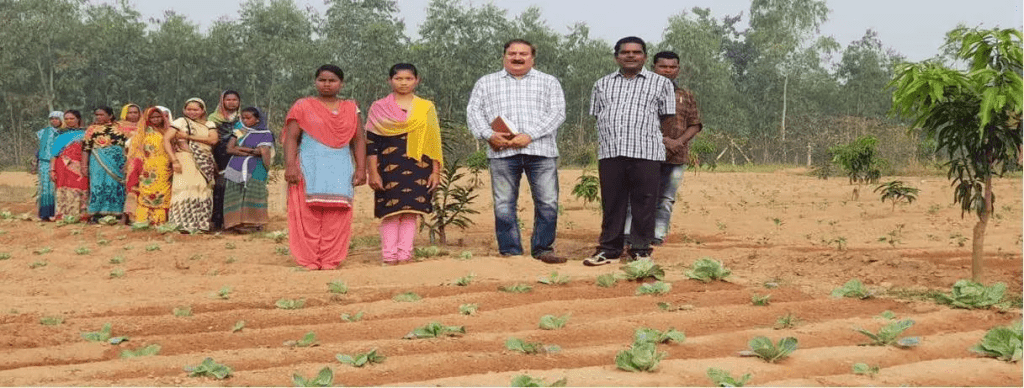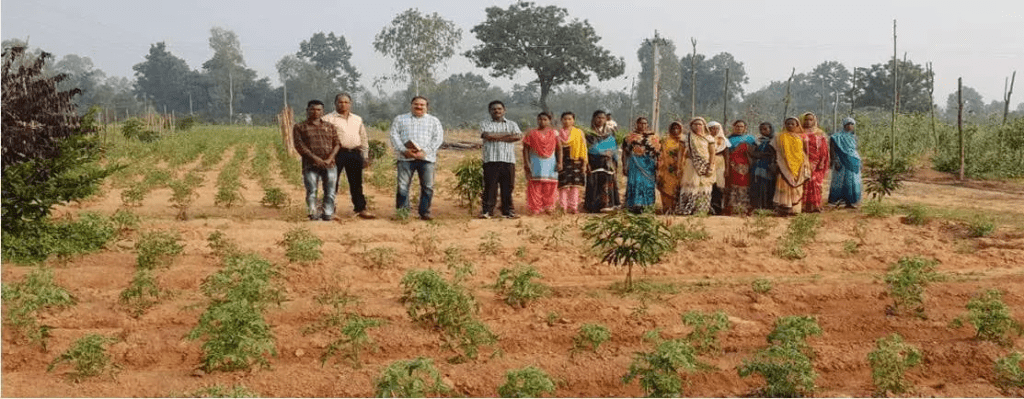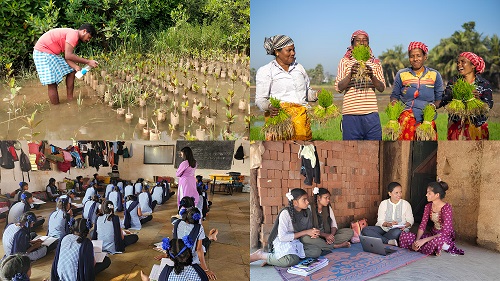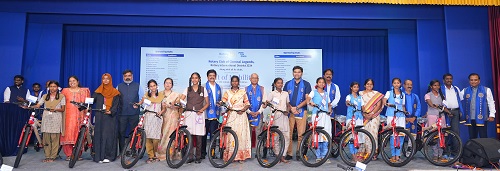
Chhattisgarh : New chapter of economic prosperity of women Chief Minister Vishnu Deo Sai has given special instructions to the Forest Department for economic empowerment of women. He has asked to ensure participation of women in various schemes and programs of the Forest Department and to make them self-reliant as well as make all possible efforts to improve their economic conditions. Instructions have been given to provide training and financial assistance to women to encourage their maximum participation in works related to forest products and other livelihood based works, the very pleasant results of which are being seen.

Chhattisgarh Forest Department paves the way for economic empowerment of the villagers living in the forest area by actively involving them in forest conservation and management under Joint Forest Management. Joint Forest Management Committees are formed by local villagers who play an important role in forest conservation and are inspired by the concept of shared use of forest resources. The Forest Department provides training to these committees, so that the livelihood of people dependent on forests can be improved.
The Maa Mahamaya Self Help Group of 11 women from Madai, a small village in Marwahi forest division of Chhattisgarh, has proved that with determination and proper guidance, one can increase their income sources and raise their standard of living. With the support of the Forest Department, this group has transformed a simple agro-forestry initiative into a thriving economic enterprise. With the guidance of the Forest Department and through their entrepreneurship, the women of this group have earned an income of more than seven lakh rupees so far. Their journey is not only of economic prosperity, but also a symbol of environmental protection and community empowerment.

The journey began in the financial year 2018-19 when Meera Bai, president of the Maa Mahamaya Self Help Group and Sumitra, secretary, and the committee members Kewalya, Budhkunwar, Rameshia, Manisha, Semkunwar, Makin, Laung Kunwar, Sukhanta, and Sukshen planted 2,000 mango trees in 5 hectares of land in Patharra (Rumga) revenue area. The women planted mango trees of popular varieties like Dussehri, Langda, Amrapali, Chaunsa, Bombay Green as well as local varieties. This step taken to promote agroforestry under the Green India Mission was not just a tree plantation drive but a well-planned strategy to increase green cover, improve soil moisture conservation, and provide sustainable employment opportunities for the local community.
The sisters of the group told that they had to face struggles and challenges in the initial years. In the first year, they had to plow the land deeply to take care of the mango plants. So that the roots of the plants are strong and the moisture remains in the soil.
During this time, they did not cultivate vegetables, because more care was needed for the new mango plants. Although there was no profit, they did not lose courage. In the year 2019-20, when the mango trees grew a little, they started growing vegetables in the intervening places. They used the income from the cultivation of vegetables like beans, tomatoes, cabbage, cauliflower, peas, chillies, ladyfinger, onion, yam, ginger, turmeric, gourd, bitter gourd, and pumpkin to meet the needs of the group and to buy seeds and manure for the next season.
In the years 2020-21 and 2021-22, the group expanded the cultivation of vegetables along with the care of mango trees. They grew a variety of vegetables in their garden and earned income from their sale. During this time, they took the difficult decision to remove flowers from mango plants so that the trees could grow better and get a good harvest in future. In the year 2022-23, the hard work of the group paid off. The mango trees grew fully and gave a good harvest. They sold 4,203 kg of mangoes in the local and Bilaspur markets, earning them a profit of more than Rs 7 lakh since the beginning of this initiative. This economic benefit was a direct proof of their hard work, patience and planning. Even today, Maa Mahamaya Self Help Group has maintained its success with a rate of 98 percent survival trees.
This initiative of theirs is not only promoting local employment and economic benefits, but also symbolizing environmental sustainability and women empowerment. Under the Green India Mission, the initiative of this group is an excellent example of good practice. This initiative has proved how with the right guidance and community support, rural women can not only move towards economic self-reliance, but can also make a significant contribution to environmental protection. Inspired by the success of their current agroforestry venture, the self-help didis are considering purchasing e-rickshaws for transporting vegetables and mangoes.
In the future, they are also planning to set up a small ice-cream manufacturing unit specialized in mango flavour, which will further increase their income. Meera Bai, President of Maa Mahamaya Self Help Group said that we are thankful to the Forest Department for its continued support. With their help, we are not only successfully cultivating high quality mangoes but also cultivating vegetables in the intercropping spaces. This has increased our income and empowered the women of our group. Also, this initiative has created new employment opportunities in the surrounding villages. Our standard of living has improved significantly. This success story of Maa Mahamaya Self Help Group is not only an example of economic upliftment but also an inspiring step towards a sustainable and prosperous future.
![]()







